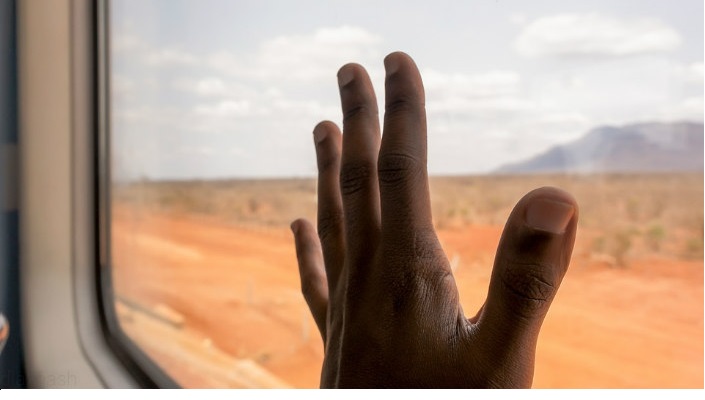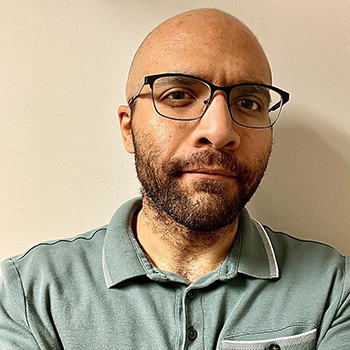
According to the U.S. Health and Human Services Office of Minority Health, “Minorities are less likely to receive diagnosis and treatment for their mental illness, have less access to mental health services and often receive a poorer quality of mental health care.” Their statistics also show that more than 70% of Black adolescents who have experienced a major depressive episode haven’t received treatment.
In many of these cases, the National Alliance on Mental Illness explains, “[T]hese problems are increased by less access to care, cultural stigma and lower-quality care.” These statistics paint a troubling picture that shows just how necessary improving access and quality of mental health is to many systemically oppressed communities now.
July is Minority Mental Health Awareness Month, but these issues persist year-round and demand our attention, concern, and action.
Our Jewish Values
The Religious Action Center of Reform Judaism explains Jewish tradition’s recognition that individuals can only be healthy when the community cares for their both their body and mind. Maimonides once wrote:
“When someone is overpowered by imagination, prolonged meditation, and avoidance of social contact, which they never exhibited before, or when they avoid pleasant experiences that were in them before, the physician should do nothing before they improve the soul by removing the extreme emotions.”
As Jews, then, our pursuit of tikkun olam includes repairing the lack of access, stigma, and quality of mental health care so that individuals on the margins can receive appropriate and necessary services.
Obstacles to Equitable Mental Health Care
When we talk about mental health issues, we might think about schizophrenia, major depression, anxiety, obsessive compulsive disorder, etc. What we don't typically think about are the environmental conditions that exacerbate symptoms in people who are genetically predisposed to having those disorders and those who develop mental health disorders as a result of environmental conditions.
In the United States, the current mental health care system is set up to favor those who are white, wealthy, educated, cisgender, living without a disability, and verbal. Many factors contribute to a cultural stigma among Black, Indigenous, and People of Color (BIPOC) populations against seeking assistance, including cost, accessibility of services, and the expectation that talk therapy is the preferred mode of delivery to address mental health issues. There are also conditions of poverty, racism, access to healthcare and resources, etc., that directly relate to issues of over- and under-diagnosing and poor treatment results.
These factors all have an outsized impact on mental health.
When racial and ethnic minorities seek mental health care, we are often misdiagnosed. For instance, statistics show that Black and Brown kids are over-diagnosed with emotional disabilities and under-diagnosed with autism spectrum disorder. One example of this, as cited by the Brookings Institution, is that when Children of Color who are highly sensitive to environmental triggers act out, teachers often rush to label them “bad kids” and clinicians label them as Conduct or Oppositional Defiant Disordered – when, in reality, they may be dealing with environmental issues related to systemic racism, including poverty and disproportionate exposure to trauma or exhibiting symptomatology of other diagnoses (i.e. autism spectrum disorder, etc.).
What’s the Solution?
It’s vital to ensure two things: that People of Color in the mental health fields are involved with the conceptualization of and treatment of disorders – and that mental health care is easily accessible in Communities of Color.
We must equip more People of Color to be in positions of leadership in the field of mental health. Why? For starters, because structural racism is rampant, and it is pervasive. And as wonderful as the most enlightened white clinician may be, they rarely see the full picture of the issues many People of Color face.
We need more People of Color to be trained in mental health professions – individuals who are not just multiculturally aware but also adept at making those connections in order to best help Clients of Color who face obstacles unique to their communities and lives. In addition, these practitioners need to be embedded in these communities all the time, in creative, on-the-ground, interactive ways that don’t necessarily mean sitting in a therapy office engaged in talk therapy.
What We Can Do
Our Jewish faith tradition is deeply rooted in the idea of community and looking out for one another – especially those of us on the margins. As a Jew, a mental health practitioner, and a Woman of Color, I believe we need to address the intersection of mental health issues and poverty, the rate of incarceration among BIPOC, the lack of equitable educational opportunities, and other systemic issues that people who are marginalized face on a daily basis. The concept of tikkun olam means that we need to advocate for equitable mental health resources. It’s necessary on every level in addressing mental health issues for People of Color.
To support equitable mental health initiatives, visit the National Alliance of Mental Health's "Getting Involved" site and check out Project LETS (Let’s Erase the Stigma), which aims “to protect the civil and human rights of mentally ill folks through policy change – especially those who experience multiple forms of oppression and therefore are rendered especially vulnerable.”
Learn more about disability inclusion and accessibility, including mental health issues, in the Reform Jewish community by visiting rac.org.
Explore Jewish Life and Get Inspired
Subscribe for Emails

